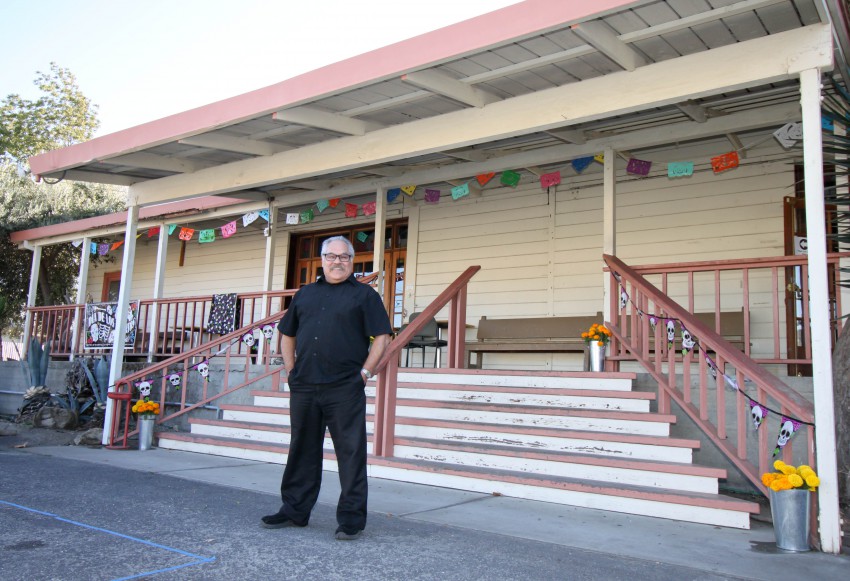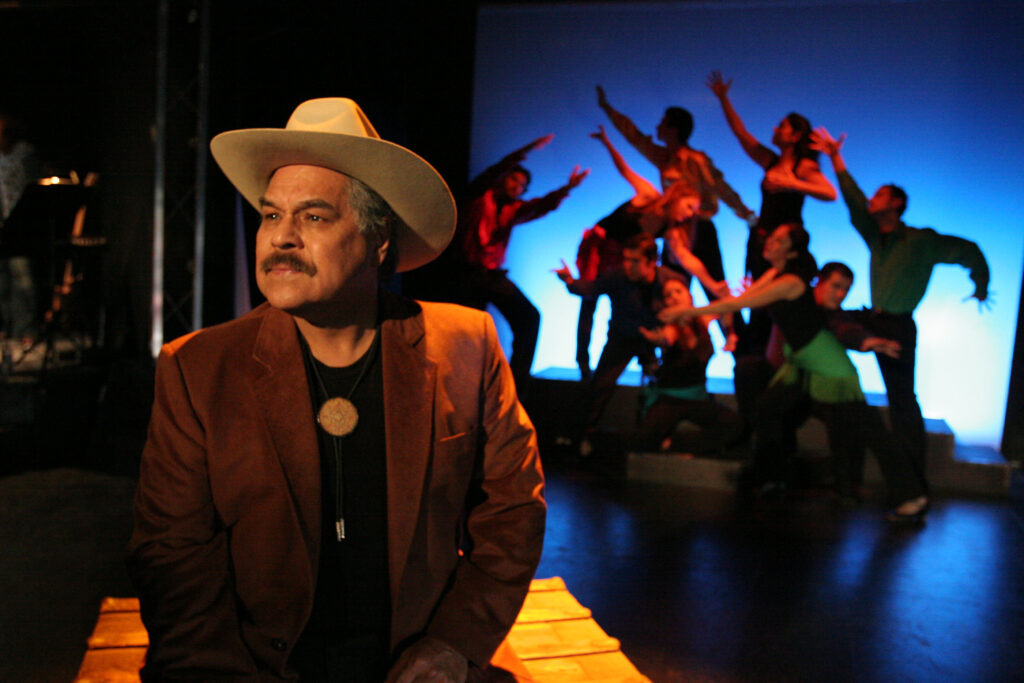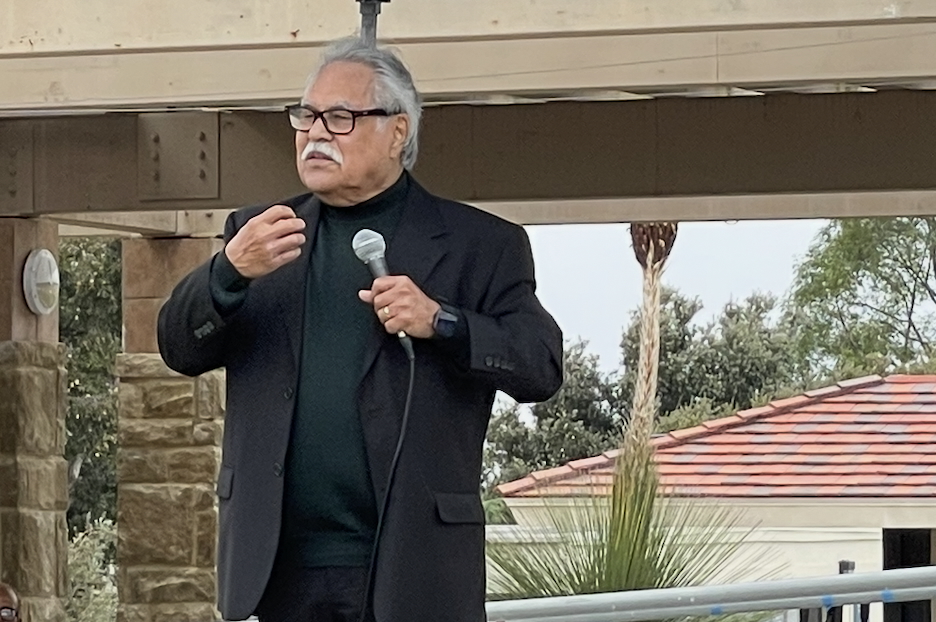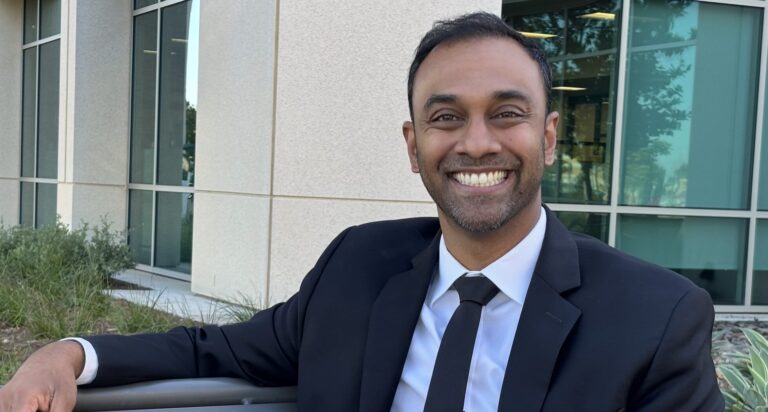By Melanie Slone
Six-year-old Luis Valdez was excited to participate in his school play. “I was transfixed; I’m going to have my debut before the world,” he remembers. But his family was evicted from his migrant worker camp a few days before the production. Driving away, “in the early morning fog, I saw the school disappear. And I felt this hole open up in my chest…That hole became the hungry mouth of my creativity.”
Twenty years later, “It seemed to me that the time was right, that this was a way to address some of our inequities by using theater as a weapon.”
Luis was born into a family of migrant farmworkers in the San Joaquin Valley in 1940. “Chicanos were a real minority then; the country was totally segregated in those days…We kind of took it for granted because that’s just the way the world was.”
Luis’ family had a love of reading. “My dad had a love of books because…he had to leave the fifth grade…My mother…wanted to go to high school, but my grandparents refused to let her.”
Luis’ parents believed the best way for their children to get “out of poverty” was to get educated. Instead of money, he says, “they gave us their loving support.”
Luis was always an avid reader, checking out books, especially biographies, from local libraries and even reading the Iliad and the Odyssey when he was just 14. “I loved books. I attribute some of that to my dad. He was orphaned at 12, but he had this hunger for history,” he says. He bought a secondhand encyclopedia set. “My brother and I, that was our TV, that was our entertainment at night, sometimes by candlelight, by campfire…I realized that these were collections of human knowledge…a hook on the world.”
Young Luis began to put on plays with his cousins, even writing dialog for them. He also started to read plays. “I discovered in the library published plays. These were kids’ plays of different kinds…so, I was having an education through reading.”
Still, Luis had to work his way through college. “There were no scholarships as such at the time.”

Teatro Campesino
“I was the only Chicano playwright out there at the beginning, 60 years ago,” Luis tells us. His writing filled that void in both his heart and the Chicano community.
Luis identified “with the cultural revolution in the 1920s, following the violent Mexican Revolution.” José Vasconcelos, the author of The Cosmic Race, “espoused the whole idea of the cosmic background of indigenous cultures in Mexico.”
Luis had also seen the Mexican American Circo Escalante that visited rural areas in California, and he knew about popular Mexican theater. A connoisseur of many forms of art, Luis is also inspired by “one of the secrets of the universe, papier-mâché.”
All these elements came together in Luis’ writing and, after joining the 1965 Delano grape strikes, he pitched to Cesar Chavez the idea of a theater by and for farmworkers. “And that essentially was the spark that set off the Chicano theatre movement in the 70s,” he says. “The Teatro Campesino became a real expression of Chicano identity on college campuses. …The idea of curtailing the racist tendencies of the educational system became part of our cause.”
Zoot Suit and La Bamba
The Zoot Suit riots were “a terrible wound that was still there in the 1970s,” says Luis.
In 1943, Los Angeles law enforcement “decided to clean up the city, so they aimed at the Zoot Suiters,” Chicanos including Pachucos, who “were fighting for their own dignity and trying to establish a cultural profile that would allow them to survive in the cities,” Luis says. “They were cool, jazz afficionados. They carried their rebellion as a chip on their shoulders. But that was part of the struggle for dignity, identity.”
In the 1943 Zoot Suit riots, Marines and sailors beat up Mexican Americans in Zoot Suits and then Mexicans in barrios in general, he adds. “Nobody was killed in these Zoot Suit riots, but it left a terrible psychic wound. It was a humiliating experience for the community at large, an injustice…”
Years later, when Luis was commissioned to write a play about LA history, he focused on the riots. “We need to rescue the Pachuco from the accusation that they were just basic punks and criminals. That’s one of the reasons I wrote Zoot Suit.”
The play, which he also directed, opened in 1968 to a sold-out crowd. “It was a citywide phenomenon…It was just a wonderful event of affirmation and of presence for the city of Los Angeles Chicanos. In some ways, it was a response to the pain that the community had harbored.”
Luis had the opportunity to meet the people involved in the 1940s riots. “I was able then to get more depth and to meet more members of the family.”
He turned down a half-million dollar offer for the movie rights. “I decided I needed to make the movie on my own terms if I could,” he says. And he did. With the help of colleagues in Hollywood and at Universal Studios, the play was adapted and filmed at the theater. “It was baptism by fire,” he says.
Thanks to the movie, Zoot Suit has survived for the new generations, says Luis. “Zoot Suit cut a hole in the celluloid of Hollywood and opened it so…Chicano theatre, drama, film could step forward to say, hey, we’re here. We’re not imitating anybody. We’re coming in as original as we can.”
The lessons learned came in handy in 1987, when Luis wrote and directed the movie La Bamba, based on the true story of rock legend Ritchie Valens.
“It was accepted by the mainstream audience worldwide,” he says. “It’s a piece of Americana that anybody can relate to. Rock ‘n’ roll is a global phenomenon, and the Chicano community has a rock ‘n’ roll pioneer…I wrote the screenplay based on the music.”

Art, Inspiration, and Dignity
“If you’re an artist, it’s hard to separate your art from your life,” says Luis. He believes authors “put a name on an experience we’ve all had…Theater is an extension of poetry. It is the identification of our human experience.”
What advice does he have for aspiring writers and artists?
“Be in touch with your own heart. Don’t let anything come between you and your own heart.”
He says not to demean yourself or your culture just to get that big break. “The responsibility weighs heavily on the shoulders of the artists to create these human images. Write from your own dignity. Write from your own self-possession, not from somebody’s stereotypical view of who you are,” he urges.
“I take a very campesino approach to my life and to the process of doing my art. You have to till the ground, prepare the ground. The ground is the Earth itself, my people, the audience.”
Luis is still working on his plays and is about to publish his autobiography. “That’s the way it passes to the next generation,” he says. “Literature is the key to the preservation of our ideas, our memories, and of our concept of what life is all about.”




